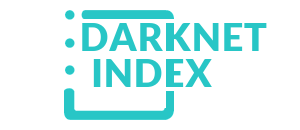The darknet, also known as the dark web, is a concealed section of the internet that's inaccessible via standard search engines. You can only access it using special software, settings, or authorization. This area comprises websites and content that are purposely kept hidden from public view.
Accessing darknet requires using Tor Browser, a special web browser that routes your internet traffic through a global network of relays managed by volunteers. This way, it becomes very difficult to trace which websites you're visiting, and these sites won't know where you are located.
When visiting the dark web, use a secure browser like Tor, do not reveal any of your personal information, and don't open suspicious files or links to stay safe.
The Darknet is often utilized for secure communication, discreet information or file sharing, anonymous research without identity exposure, and occasionally for engaging in illicit activities. It is also recognized for hosting underground black markets(darknet markets), whistleblowing platforms, and discussion boards that champion freedom of speech.
While accessing Darknet Markets themselves is typically not against the law in most places, engaging with illicit goods within them is generally considered a crime. On the other hand, some people might visit Darknet Markets for lawful purposes such as research, journalistic work, or simply to explore online communities. It's essential to know the local laws regarding online activities, and be cautious when using these platforms to avoid any potential issues.
US and German Authorities Take Down Cryptocurrency Wallet Cryptonator, Charge Its Administrator
The IRS-Criminal Investigation, in partnership with the US Department of Justice and the FBI, along with the German Federal Criminal Police Office (BKA) and the Attorney General’s Office in Frankfurt, has reportedly seized the domain of the online crypto wallet, Cryptonator. This action was taken due to allegations that the platform did not implement "appropriate" anti-money laundering measures and was involved in facilitating "illicit activity."
According to a blog post by TRM Labs, Cryptonator, which was launched in 2014, is an online cryptocurrency wallet that facilitates direct transactions and enables instant exchanges among various cryptocurrencies within a single personal account, effectively functioning as a personal cryptocurrency exchange.
TRM Labs also mentioned that along with “seizing the domain, prosecutors in the Middle District of Florida charged Roman Boss for money laundering and operating an unlicensed money service business.”
The criminal complaint states that Cryptonator "did not gather personal information, enabling customers to keep their identities hidden."
Cryptonator violated US anti-money laundering laws. It allowed users to create accounts with only an email and a password. This bypassed the KYC checks that compliant exchanges require during onboarding.
According to blockchain intelligence, the government claims that from 2014 to 2023, cryptocurrency addresses linked to Cryptonator executed over 4 million transactions, amounting to about $1.4 million.
Also, Bitcoin addresses managed by Cryptonator have moved over USD 25 million to and from Darknet Markets and Fraud Shops. They've sent over USD 34.5 million to and from scam addresses, over USD 80 million to high-risk exchanges, and over USD 8 million to ransomware campaigns. They've also transferred over USD 54 million to and from addresses linked to hacked or stolen funds, over USD 34 million to and from mixer-related addresses, and close to USD 17 million to and from sanctioned addresses.
The comprehensive 29-page complaint claims that Boss was aware of his service being utilized for illegal activities, including transactions on Darknet Markets, and that this is supported by evidence from direct communications with undercover agents.
This case is described as “a demonstration of international law enforcement collaboration and the application of blockchain intelligence to prevent illegal activities.”
